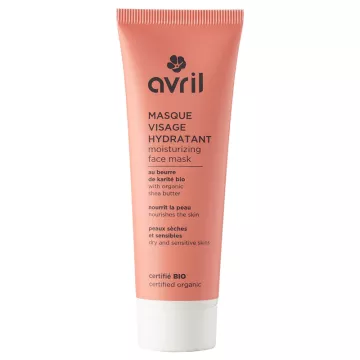
What are the best practices for daily skin protection?
To protect your skin effectively, daily application of a sunscreen with a protection factor (SPF) of at least 30 is essential, even on overcast days. We recommend choosing products with broad-spectrum filters against UVA and UVB rays. Regular moisturizing with creams adapted to your skin type (dry, oily, combination) also helps maintain the skin's protective barrier and prevent skin aging.
What ingredients should you look for in skin protection products?
For optimum protection, choose products enriched with antioxidants such as vitamin C, vitamin E and retinol, which protect against free radical damage. Components such as zinc and titanium dioxide are also effective in protecting skin from the sun's harmful effects. Make sure products are non-comedogenic and dermatologically tested to avoid irritation.
How can I protect my skin from the effects of aging?
Regular application of anti-aging creams containing peptides and growth factors can help reduce the signs of aging by stimulating collagen production. Eating a diet rich in fresh fruit and vegetables, as well as omega-3s, is also crucial to maintaining skin's elasticity and youthfulness.
What are the recommended morning and evening routines to protect the skin?
In the morning, start with a gentle cleansing, followed by the application of an antioxidant serum, then a moisturizing cream and finally a sunscreen. In the evening, after thorough cleansing to remove impurities and make-up, apply a treatment specific to your skin type or preoccupations (such as acne, spots or wrinkles) before finishing with a rich night cream to protect and regenerate the skin while you sleep.
What should I avoid doing to protect my skin?
Avoid exposure to the sun during the hottest part of the day, generally between 10am and 4pm. Don't smoke, as it accelerates skin aging by reducing the supply of oxygen and essential nutrients. Limit alcohol consumption too, as it can dehydrate the skin and inhibit the body's ability to repair cellular damage.
How can I identify the signs of sun damage on my skin?
To effectively protect your skin, it's crucial to recognize the signs of sun damage. Symptoms often include changes in skin texture, excessive dryness, age spots, thickening of certain areas, as well as the development of actinic keratoses, rough lesions that can become cancerous. If you notice such changes, consult a dermatologist for a thorough evaluation and to discuss possible treatment options.
What are the effects of pollution on the skin, and how can we protect it?
Pollution can accelerate skin aging by releasing free radicals that damage collagen and elastin. To protect your skin from pollution, use daily products containing antioxidants such as vitamins C and E. It's also beneficial to cleanse your face twice a day to remove pollution particles, and apply a serum or barrier cream to minimize the absorption of pollutants.
Can the skin be protected against damage caused by digital screens?
Prolonged exposure to the blue light emitted by screens can contribute to premature aging of the skin. To protect the skin from these effects, we recommend using products containing ingredients such as lutein and carotenoids, which can help filter blue light. In addition, adjusting the brightness of your screens and using color modes that reduce blue light can also reduce exposure.
How do I choose the best products to moisturize and protect my skin?
Selecting moisturizers suited to your skin type is essential. For dry skin, look for products containing humectant ingredients like hyaluronic acid and emollients like shea butter. Oily skin will benefit from light, water-based lotions. Make sure all products are free from irritating substances such as alcohol and perfumes, and prefer those with mild preservatives to avoid skin reactions.
What dietary habits should I adopt to protect my skin from the inside out?
A diet rich in antioxidants can protect the skin by neutralizing free radicals. Eat foods rich in vitamin C (citrus fruits, berries), vitamin E (nuts, seeds), beta-carotene (carrots, spinach) and omega-3 (oily fish, flaxseed). Drinking enough water is also crucial to keep skin hydrated and help eliminate toxins.